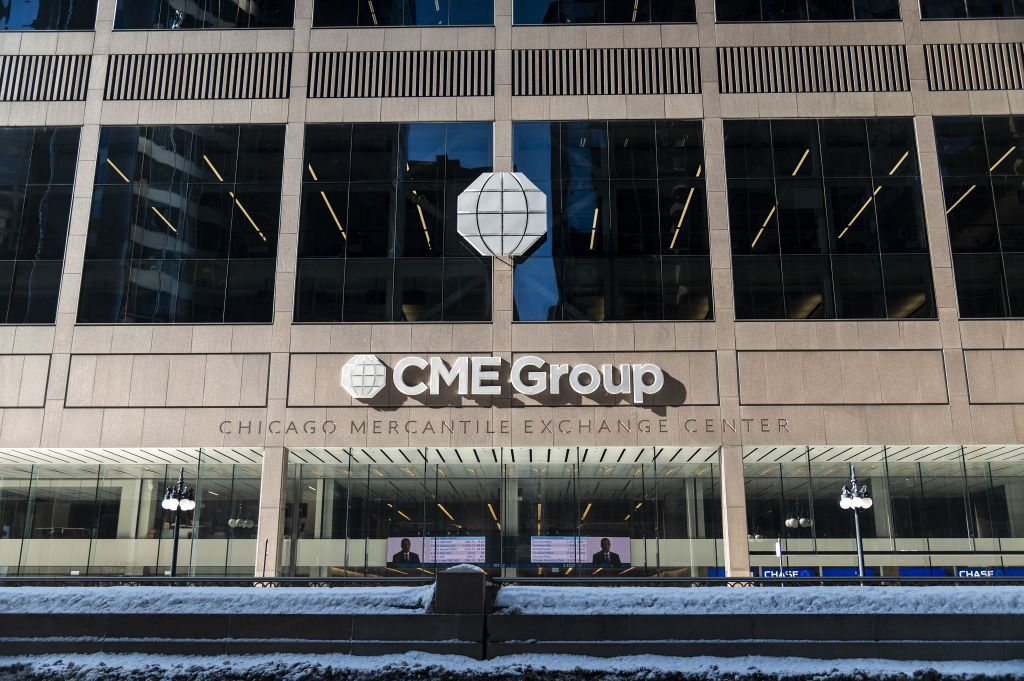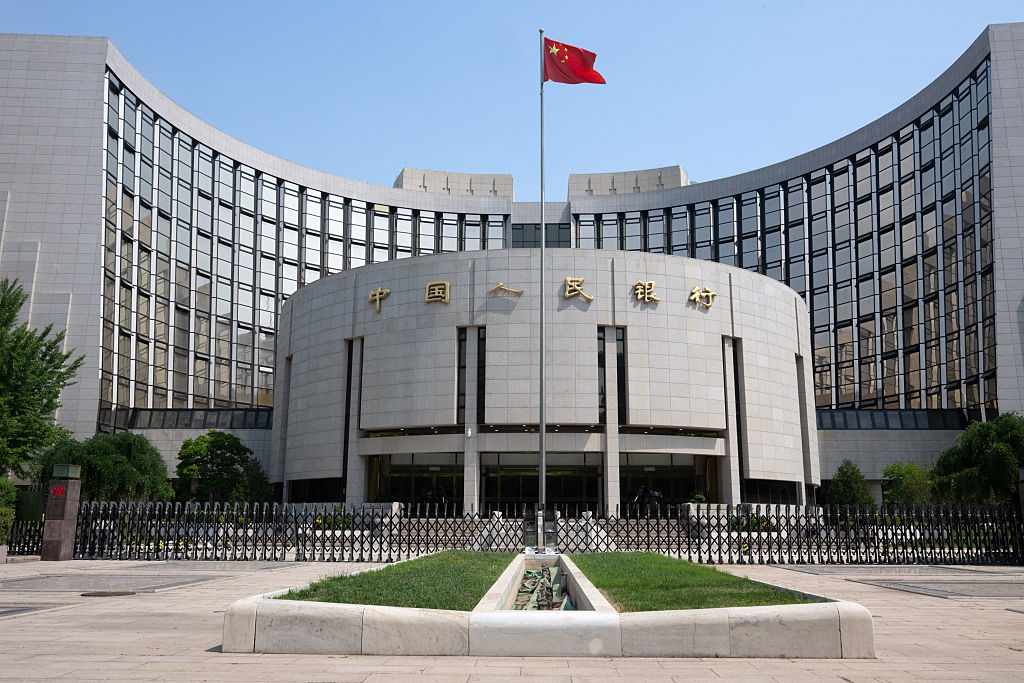Trading: how to cash in on America's hot housing market
Homebuilder Pultegroup is perfectly placed to cash in on the US housing boom. Matthew Partridge explains how to play it.


Get the latest financial news, insights and expert analysis from our award-winning MoneyWeek team, to help you understand what really matters when it comes to your finances.
You are now subscribed
Your newsletter sign-up was successful
Want to add more newsletters?

Twice daily
MoneyWeek
Get the latest financial news, insights and expert analysis from our award-winning MoneyWeek team, to help you understand what really matters when it comes to your finances.

Four times a week
Look After My Bills
Sign up to our free money-saving newsletter, filled with the latest news and expert advice to help you find the best tips and deals for managing your bills. Start saving today!
In early February, I argued that you should go long on US homebuilder DR Horton owing to the strong American housing boom. Six months on, the boom shows no signs of letting up, with both house prices and sales still climbing.
The latest Case-Shiller house price index suggests that the average house price in the US has risen by 16% in a year. While some argue that the market is overheating, and that a slowdown or even a 2009-style slump is just around the corner, I think it’s time to double down on homebuilding stocks.
Part of the boom in the US housing market is clearly down to the combination of a recovering economy, rock-bottom interest rates and the various stimulus packages. This is pushing up demand.
MoneyWeek
Subscribe to MoneyWeek today and get your first six magazine issues absolutely FREE

Sign up to Money Morning
Don't miss the latest investment and personal finances news, market analysis, plus money-saving tips with our free twice-daily newsletter
Don't miss the latest investment and personal finances news, market analysis, plus money-saving tips with our free twice-daily newsletter
However, there is also evidence of a structural change in the market, as the pandemic and the rise of remote working make life outside the major urban areas much more attractive. While this impulse will diminish as memories of the crisis fade and people return to their offices, the rebalancing between the major cities and the rest of America will continue.
A housing shortage
The US market is also suffering from the after-effects of the 2006 crisis, which saw the number of homes built each year fall drastically for nearly a decade. With the population still growing, this has led to a shortage of new homes, with the National Association of Realtors estimating that around five million new homes need to be built over the next decade to replenish the housing stock. This shortfall should bolster prices significantly over the next few years.
Another homebuilder I consider particularly attractive is PulteGroup (NYSE: PHM), America’s third-largest, and one that specialises in the detached single-family houses that will benefit from the changes in the way America works and lives.
Between 2015 and 2020 it nearly doubled its revenue, and sales are expected to keep growing by double-digit percentages over the next few years. It has a large number of homes that have been already been sold and are in the process of being built. What’s more, it has managed to do this while earning a strong return on capital expenditure, a key gauge of profitability.
This has enabled the group to reduce the amount of debt on its balance sheet by more than 50% over the past four years while increasing the amount of cash that it holds, which should protect it if the market does slow.
Despite this it looks very cheap, trading at only 5.7 times earnings. At present the market seems to be cooling on Pultegroup’s shares: they have declined by around 17% from their all-time high earlier this year.
I would therefore not go long until they rise above $58, around 10% higher than their current price of $53. Once they have crossed that threshold I would buy them at £35 per $1, with a stop loss of $30. This gives you a total downside of £980.
Trading techniques: hot sun, hot stocks?
Can the weather affect the stockmarket? A 2001 study by the University of Michigan’s business school found that higher-than-average morning sunshine was positively associated with daily equity returns for 26 cities between 1982 and 1997. However, other studies seem to suggest that the amount of sunshine isn’t the only type of weather that can move markets; temperature also has an effect.
Intuitively you might expect higher temperatures to make people happier, and more eager to invest. However, a 2005 study by Toronto’s York University and the University of Toronto found that there was a negative relationship between maximum temperature and stockmarket returns in the United States, Canada, Britain, Germany, Sweden, Australia, Japan and Taiwan between 1982 and 1997. In other words, the warmer the temperature the worse the market did that day (and vice versa).
They explained this behaviour by pointing to research that shows that higher temperatures make people more listless and apathetic, while lower ones make them more aggressive.
Interestingly, a later study in 2011, by Christos Floros of Hellenic Mediterranean University, produced more ambiguous results. On the one hand, he detected a negative relationship between temperature and daily stock returns in Austria, Belgium and France. However, in the case of the British and Greek stockmarkets, he found the opposite: higher temperatures led to higher returns.
Still, while the negative relationship in Austria, Belgium and France was large enough to be statistically robust, the positive effect in Greece and the UK was so small that it wasn’t statistically different from zero (ie it could have been chance).
How my tips have fared
My long tips have struggled over the past month, with three falling and two rising. Media group ITV fell from 125p to 114p and spread betting firm Plus500 declined from 1,407p to 1,389p. Cruise ship operator Norwegian Cruise Line dropped from $27.28 to $24.66, falling below the stop-loss level of $25, which means that the position is automatically closed.
US homebuilder DR Horton rose from $89.03 to $94.21 while construction firm Morgan Sindall increased from 2,275p to 2,324p. Counting Norwegian Cruise Line, my long tips are making a net profit of £3,755, down from £4,022.
My short tips have also put in a mixed performance. Electric-car company Plug Power went down from $29.02 to $28.18 while cinema chain AMC fell from $42.61 to $33.80. However, cloud-computing specialist Snowflake rose from $267 to $280, electric car-company Tesla rose from $685 to $731 and bitcoin appreciated from $33,233 to $45,866. The net profits on my short tips have gone from £2,308 to only £53, though this was partially affected by the closure of some of my most profitable short positions, such as Nikola and Ocado, last month.
Since TP ICAP hasn’t reached the price at which you should start going long, I have four active long tips (ITV, DR Horton, Morgan Sindall and Plus500) and five shorts (Snowflake, Plug Power, bitcoin, Tesla and AMC).
I think this is a reasonable balance, so there is no need for you to close any additional positions. However, I’m going to increase the stop-loss on ITV to 100p (from 95p). I also recommend that you increase the stop-loss on Morgan Sindall to 1,300p (from 1,200p) and reduce the position at which you cover Snowflake to $380 (from $390).
Get the latest financial news, insights and expert analysis from our award-winning MoneyWeek team, to help you understand what really matters when it comes to your finances.

-
 Should you buy an active ETF?
Should you buy an active ETF?ETFs are often mischaracterised as passive products, but they can be a convenient way to add active management to your portfolio
-
 Power up your pension before 5 April – easy ways to save before the tax year end
Power up your pension before 5 April – easy ways to save before the tax year endWith the end of the tax year looming, pension savers currently have a window to review and maximise what’s going into their retirement funds – we look at how
-
 Should you sell your Affirm stock?
Should you sell your Affirm stock?Affirm, a buy-now-pay-later lender, is vulnerable to a downturn. Investors are losing their enthusiasm, says Matthew Partridge
-
 Profit from pest control with Rentokil Initial
Profit from pest control with Rentokil InitialRentokil Initial is set for global expansion and offers strong sales growth
-
 In the money: how my trading tips fared in 2025
In the money: how my trading tips fared in 2025The success of the open positions offset losses on closed ones, says Matthew Partridge
-
 Coreweave is on borrowed time
Coreweave is on borrowed timeAI infrastructure firm Coreweave is heading for trouble and is absurdly pricey, says Matthew Partridge
-
 Circle sets a new gold standard for cryptocurrencies
Circle sets a new gold standard for cryptocurrenciesCryptocurrencies have existed in a kind of financial Wild West. No longer – they are entering the mainstream, and US-listed Circle is ideally placed to benefit
-
 Profit from other investors’ trades with CME Group
Profit from other investors’ trades with CME GroupCME Group is one of the world’s largest exchanges, which gives it a significant competitive advantage
-
 Investors need to get ready for an age of uncertainty and upheaval
Investors need to get ready for an age of uncertainty and upheavalTectonic geopolitical and economic shifts are underway. Investors need to consider a range of tools when positioning portfolios to accommodate these changes
-
 How much gold does China have – and how to cash in
How much gold does China have – and how to cash inChina's gold reserves are vastly understated, says Dominic Frisby. So hold gold, overbought or not